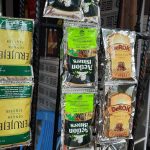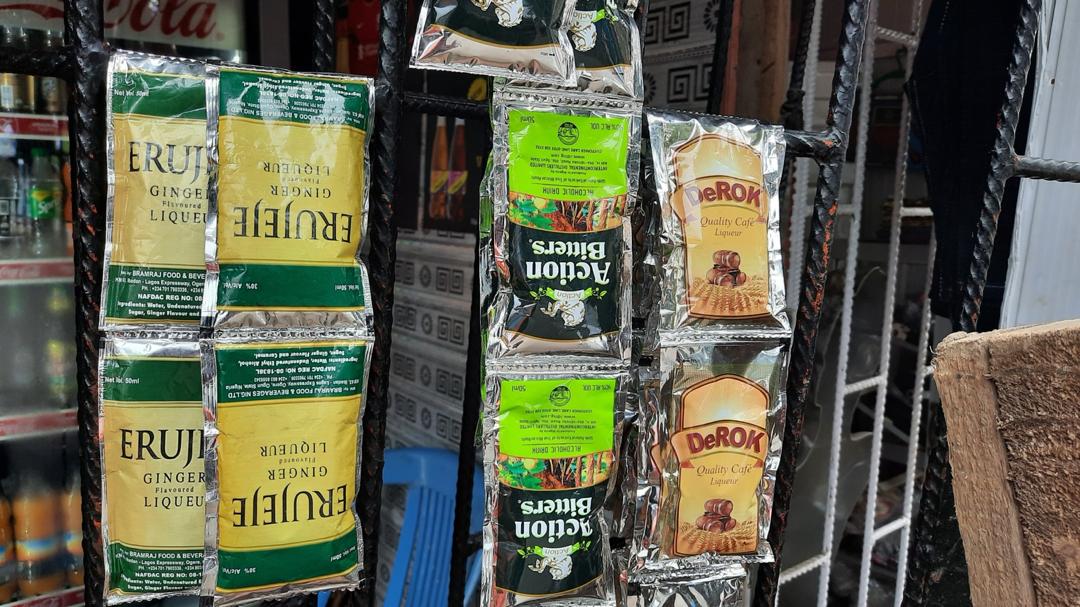As Nigeria remains on red alert for the third wave of COVID-19, another epidemic may be lurking around; Cholera. EDWINA AJUMA AMEH writes on how cholera outbreak is ravaging states in Nigeria.
Cholera outbreaks caused partly by heavy rains battering some parts of Nigeria, have killed hundreds of people in the last few months, prompting appeals for medical assistance to help thousands of sufferers.
With the recent increase in daily cases of COVID-19, Nigeria may soon be facing another looming epidemic, Cholera, which seems to be spreading like wild fire across the country, in spite of efforts by the Nigeria Centre for Disease Control (NCDC) to contain the current outbreak.
Cholera can kill victims within 24 hours by inducing vomiting and diarrhea that cause severe dehydration, but it is treatable using a simple mixture of water and rehydration salts.
According to the NCDC, cholera is an acute diarrhoea disease caused by a bacteria called vibrio cholera. It is a potentially life-threatening, and primarily a water-borne disease, that is transmitted by the ingestion of contaminated food or water.
Latest cholera situation report by the NCDC, has shown that a total of 19,305 suspected cases including 479 deaths have been reported from 18 states and FCT. These states are Benue, Delta, Zamfara, Gombe, Bayelsa, Kogi, Sokoto, Bauchi, Kano, Kaduna, Plateau, Kebbi, CrossRiver, Niger, Nasarawa, Jigawa, Yobe, Kwara and FCT.
According to the report, Bauchi, Kano, Jigawa, Plateau, and FCT accounts for the highest reported cases.
Cholera has been a reoccurring menace in Nigeria since the first series of outbreaks reported between 1970 and 1990. Major epidemics also occurred in 1992, 1995-1996, and 1997. The Federal Ministry of Health reported 37,289 cases and 1,434 deaths between January and October 2010, while a total of 22,797 cases of cholera with 728 deaths and case-fatality rate of 3.2% were recorded in 2011. Outbreaks were also recorded in 2018 with the Nigeria Centre for Disease Control (NCDC) reporting 42,466 suspected cases including 830 deaths with a case fatality rate of 1.95% from 20 out of 36 States from the beginning of 2018 to October 2018.
Claims 60 lives in FCT – Recently, the Federal Capital Territory Administration (FCTA), announced that suspected cases of Cholera in the nation’s capital have risen from 604 to 698 within the last 72 hours, adding that the death toll is now 60.
The agency assured that it has intensified community sensitization on cholera and other severe acute diarrhea disease outbreaks in the territory
The FCT Minister of State, Dr. Ramatu Tijjani Aliyu, disclosed this at the continuation of community sensitization on cholera and other severe acute diarrhoea diseases outbreaks in Pyakasa and Gwagwa respectively.
The minister who was represented by the Ag. Executive Secretary of FCT Primary Health Care Board, Dr. Iwot Ndaeyo, noted that Abaji area council recorded three suspected cases, Abuja Municipal Area Council (AMAC) recorded 281 suspected cases with 22 deaths, while Bwari Area Council recorded 134 suspected cases with 22 deaths.
Meanwhile, Gwagwalada area council also recorded 220 suspected cases with nine deaths; Kuje area council 23 suspected cases with 4 deaths, and Kwali area council 37 suspected cases with three deaths.
300 hospitalized, over 42 deaths in Bauchi
Following the outbreak of cholera disease in the Bauchi State, ActionAid Nigeria have urged the state government and NCDC to declare a state of emergency to save the residents from the deadly disease.
This is as more than 300 persons have been hospitalised following the outbreak in Dass Local Government Area of Bauchi State.
Persecondnews recalls that on June 17, 2021, the Bauchi State Primary Health Care Development Agency (BASPHCDA), announced that over 2,800 persons were hospitalised while 42 deaths were recorded.
The Director of Programmes, Bauchi State Primary Health Care Development Agency (BSPHCDA), Hajiya Suwaiba Yakubu Jibrin, who went to Dass for an assessment of the situation, disclosed that despite the reporting of 591 confirmed cholera cases between May 29 and July, 2021, the NCDC is yet to intervene.
“There is an urgent need for the Nigerian Centre for Disease Control (NCDC) to come to the aid of the people of Bauchi State to stop the spread of the disease to other communities,” she said.
Speaking, the Resident Programme Coordinator of ActionAid, Anicetus Atakpu, disclosed that they donated 1,500 kits to Cholera Treatment Centres (CTC) in Bauchi, Ningi, Dass and Toro, adding that if there is better synergy, the record of infected persons and fatality will not be high.
Plateau records 953 cases, 14 deaths in two months – The Plateau State government, disclosed that within two months, not less than 14 people have died of Cholera in the state adding that 953 cases have also been recorded within the same period.
According to the state’s commissioner for health, Nimkong Lar, a total of 910 patients have so far been discharged, while 29 are still receiving treatment at various health facilities across the state.
Lar noted that the disease, which was previously recorded in Jos North Local Government, has spread to 13 local government areas, adding that Jos North Local Government Area is the most impacted with 484 cases, followed by Jos South and Bassa Local Government Areas with 307 and 57 cases respectively.
Kills 149 in Jigawa, Kano with over 5,000 recorded cases – 30 people were reportedly killed in Jigawa State, following the outbreak of Cholera across nine local government areas of the state, and over 2,000 hospitalized.
The Permanent Secretary, Ministry of Health in Jigawa, Salisu Mu’azu, said most of the infected cases were children, as he blamed open defecation for the spread of the disease.
Mu’azu listed Hadejia, Dutse, Kirikasamma, Birnin Kudu and Ringim as some of the areas worst hit by the outbreak.
He added that the United Nations International Children’s Emergency Fund (UNICEF) had supplied some medications and promised to send more soonest.
Kano is also not left out of the scourge as over 3,000 persons have contacted cholera in Kano from March 5, 2021 to date, the ministry of health revealed.
Persecondnews gathered that 119 persons out of those infected have died from the disease which is reported to have affected 33 out of 44 local government areas of the State.
According to the Assistant Director, public health, Kano Ministry of health, Bashir Lawan, “over 2,000 persons infected have recovered, while over 100 others are currently receiving treatment at different health facilities in 7 local government areas.”
Other states that have also recorded high casualties from the outbreak includes, Kaduna with 683 cases and 33 deaths, and Niger with 400 cases and 10 deaths.
NCDC’s responseThe Nigeria Centre for Disease Control has activated a multi-sectoral National Cholera Emergency Operations Centre (EOC), in some States, following the increase in cholera cases across the country.
According to the Director General of NCDC, Dr. Chikwe Ihekweazu, the response is in collaboration with the Federal Ministry of Water Resources (FMWR), National Primary Healthcare Development Agency (NPHCDA) and other partners.
The NCDC boss added that the centre is also conducting training on cholera surveillance, hotspots mapping and developed state-level preparedness and response plans, as well as advocacy for improved access to clean water, sanitation and hygiene.
“The National EOC has been supporting states to ensure a coordinated, rapid and effective response to the ongoing outbreak. This includes the deployment of National Rapid Response Teams (RRT) to support the response at state level, provision of medical and laboratory supplies, scale up of risk communications amongst other activities.
“Additionally, the resources that have been developed as part of Nigeria’s COVID-19 response, are being used to strengthen the response to the cholera outbreak. This includes the digitalisation of the national surveillance system, establishment of laboratories and treatment centres, training of health workers among others,” He explained.
To reduce the spread of cholera, the NCDC advises that precautionary measures be taken, and offered five priority actions for the public to follow.
The measures includes, ensuring that water is boiled and stored in a clean and safe container before drinking; ensuring that the seals of bottled water are in place; frequent washing of hands with soap and clean running water, and the use of alcohol-based hand sanitiser if soap and clean water are not available.
Others are, Ensuring that food is well cooked before consumption; Avoiding raw food such as fruits and vegetables, except they have been washed in safe water or peeled yourself; Avoiding open defecation, indiscriminate refuse dumping and proper disposal of waste and frequent clearing of sewage.
The agency also advised against self-medication If you experience sudden watery diarrhoea, but rather visit a health care facility immediately.
READ ALSO- Fake Cholera drugs on rise
























Leave a comment